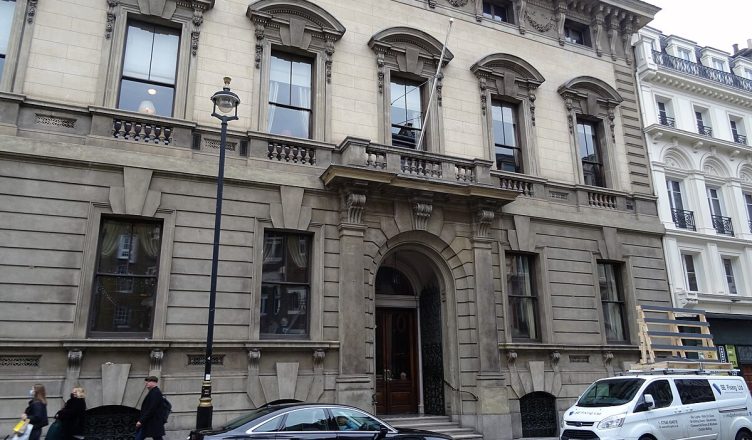The Garrick Club is just one of the elitist institutions in London set up to enable networking within the various parts of the ruling class and the State. Other clubs for the rich and powerful, the so called “great” and “good,” include Annabel’s, the Athenaeum, Boodle’s, Brook’s, the Conduit, the Marylebone Cricket Club, and many others. To this can be added the Bullingdon Club open to elite members of Oxford University.
The Garrick is one of the oldest of these clubs, founded in 1831. It geared itself to the arts and theatre, naming itself after actor David Garrick, and had or has members like Charles Dickens, H.G. Wells, Kingsley Amis, actors Stephen Fry, Benedict Cumberbatch, Hugh Bonneville, David Suchet, Damian Lewis, and the Dire Straits guitarist Mark Knopfler. Alongside this have been generals like Sir Andrew Barnard and big capitalists like the railway magnate Francis Mills. The Guardian newspaper recently revealed its current membership, which includes King Charles, the head of MI6, the head of the civil service, deputy Prime Minister Oliver Dowden, and many judges.
With the revelations over the membership of this exclusive club, which still maintains a men-only proviso, provided by the Guardian newspaper, there was a spate of resignations. These included Dowden, the bosses of the civil service and MI6, and a handful of judges. They were embarrassed by the spotlight put on the maintenance of male membership and exclusion of women.
All these clubs provide venues for the networking of the rich and influential, where rewarding deals can be passed by those in government to the super rich, as for example the provision of medical equipment during the COVID crisis.
Practically all these clubs are composed of those who attended public schools like Eton and Harrow, and Oxford and Cambridge Universities. Provision is made for up-and-coming capitalists and celebrities, who did not come from this privileged environment, but these are in the minority. It’s all about influence, whether in politics, arts, the military, or big business. It is about beneficial networking for those in different sectors of the ruling class and the State, including Westminster, the civil service, the monarchy and the judiciary and the magistracy.
The majority of these clubs were founded in the 19th century when there was fear of an insubordinate working class and where cloistered safe havens were needed by the elite, to socialise and to hatch their plans. These clubs were replicated throughout the British Empire as local organising centres of imperialism.
As such, they represent emblems of ruling class power and patriarchy. But the recent media attention has been far more focussed on the exclusion of women than on the elite socialising and networking.
Of course, the maintenance of these bastions of male privilege is deplorable. But do we really think they would any better if elite women were allowed into their spaces, just as the military and police would not be reformed and altered from their prime tasks of killing and maintaining class rule, by having female generals and chief constables?
As fortresses of capitalist domination and maintenance of patriarchy they must be swept away.

